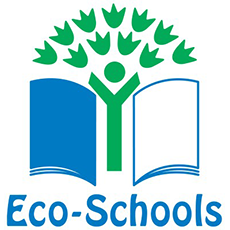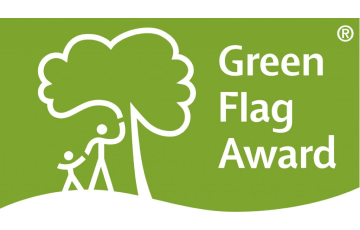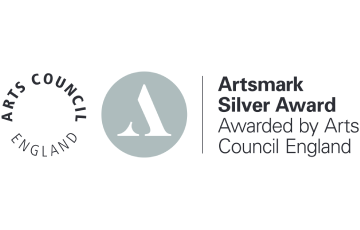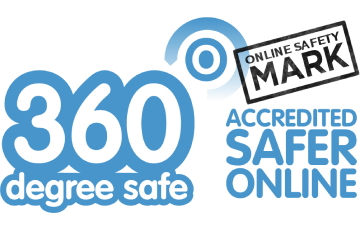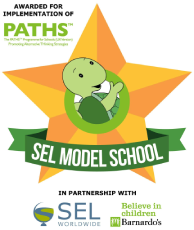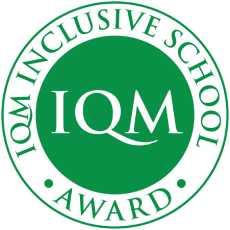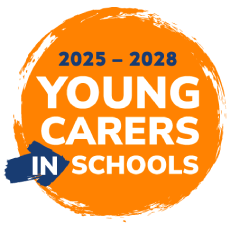Maths
Hello, I am Miss Evans and I am the subject lead for Mathematics at Lyme Community Primary School. I am passionate about developing a love of mathematics for every child; taking away any fears surrounding the subject and building confidence, ability and resilience. Through our mathematics curriculum we explore concrete, pictorial and abstract representations of mathematical concepts to ensure we are meeting the learning needs and styles of all our children. The White Rose scheme ensures progression across all key stages.
I look to inspire children by ensuring teachers use a range of media and activities to stimulate and nurture a love of learning mathematically as well as exploring maths across the wider curriculum. I feel it is also important that children see the relevance of mathematics throughout everyday life to help them understand its importance.
Through lots of repetition and rehearsal, children develop fluency skills that then enable them to reason and problem -solve effectively. Children are actively encouraged to rise to the challenge through many problem-solving tasks and activities. Again, maths develops skills, not only explicit to the subject but which can be taken into any future fields and professions.
MULTIPLICATION CHECK YEAR 4
As part of their maths curriculum, the children need to have a secure knowledge of their times tables. Times tables underpin so much of the maths learning throughout Primary and Secondary school. It is expected that all childern will know their times table facts to the 12 times table by the end of year 4. To check they have developed this 'rapid recall', a multiplication check takes place in June. The children have many chances to learn, revise and practise in school but support from home would also be of benefit to them. The websites below can also help with this.
Children:
The following websites may inspire you:-
A curriculum designed for Lyme Community Primary School
MATHEMATICS – CURRICULUM INTENT
Purpose of study
Throughout their time at Lyme Community Primary School children are provided with a variety of fun, relevant and exciting topic based experiences which enhance their natural desire to explore Maths in the world around us. They are given opportunities to observe, practise, explore and solve mathematical calculations and problems in a variety of real life contexts to deepen their understanding and make maths relevant.
We aim to provide the pupils with a mathematics curriculum, which will produce individuals who are fluent, creative, independent, persevering, inquisitive, enquiring and confident. We also aim to provide a stimulating environment and adequate resources and opportunities so that pupils can develop their mathematical skills to their full potential. These are provided in the form of the 99 club, Fluent in Five, cross curricular activities and Times Table Rock Stars (The 99 club and Times Table Rock stars are driven from Year 1 onwards).
Pupils in Early Years are given the freedom to make and explore with regular provision for number, shape and measure using an abundance of ever changing resources provided to inspire creative mathematical thinking, problem solving and inventiveness. There is an emphasis on independence and self-initiated learning, which enables foundation stage children to freely explore resources and pursue their own mathematical talents. Number conservation is also a focus in Early Years as this is a key and critical foundation on which the children can build a solid mathematical understanding. To deepen learning, children are encouraged to use mathematical vocabulary when discussing their activities and in role play with support of the Early Years practitioners.
In KS1 children are taught fluency skills (both mental and written) across each of the strands of mathematics as well as developing their reasoning and problem solving skills in practical contexts to enable them to deepen their understanding. These reasoning and problem solving activities are mainly guided in KS1, to help the children build skills they will be able to apply independently as they progress up the school. Again, a focus is placed on vocabulary to enable children to develop the skill of explaining their thinking. Maths is taught as a discrete subject as well as maximising the opportunities to explore maths through topic and apply maths in other areas of the curriculum, when relevant and purposeful. These are exploited to ensure children are able to experience maths in different exciting scenarios and real life contexts.
In KS2 children are continued to be taught fluency skills (both mental and written) through mathematical calculations that are presented to them in a variety of formats and models as well as the daily ‘Fluent in 5’ activity to support making efficient mathematical strategy choices and rapid recall. As well as fluency, there is a strong emphasis on improving perseverance by developing their reasoning and problem solving skills in a variety of practical, visual and abstract contexts to enable them to deepen, master and explain their understanding. Children are exposed to collaborative experiences as well as direct teacher modelling to provide them with a good example. Vocabulary is still at the forefront of their learning, to ensure they can explain their thinking in a clear and concise way. Opportunities to explore maths through other subjects are continued to be sought to ensure children are able to experience maths in a real life context; enabling them to see its value and relevance and successfully apply their learning.
At Lyme we place importance on finding time for children to rehearse, repeat and recap their learning to ensure it is cast to long term memory in maths (and in all other subjects). We also provide opportunities for pupils to develop their mathematical skills and thinking E.g. there should be carefully planned opportunities for measuring in science or the consideration of properties of shape and geometric patterns in technology and art, and for the collection and presentation of data in history and geography. We endeavour at all times to set work that is challenging, motivating and encourages the pupils to talk about what they have been doing; explaining their mathematical thinking and in turn developing their critical thinking skills.
The school also provides opportunities for parents to come in and experience maths and how it is delivered. This is to allow the parents to be supportive and involved in their child’s mathematical development as well as giving parents the tools to enable them to do this successfully.
Assessment and Curriculum Planning
Here at Lyme Community Primary School we believe children should be given opportunities to showcase their maths knowledge through their daily maths work, discussion and group activities as well as through more formal assessment, such as the end of Key Stage SATS and timetabled assessment weeks. We plan using the White Rose scheme of work and progression is driven through our calculation policy; ensuring each year, learning is built on previous knowledge and skills.
In Early Years, children are assessed against the EYFS age related criteria within the strand of Mathematics.
At KS1 & 2 we use the National Curriculum objective statements and report and record through INSIGHT to monitor individual pupil progress against the key stage expectations. We use the NFER tests as our form of assessment as we feel these prepare our children for the experience of sitting a SATs paper at the end of each key stage. The system assesses pupil progress against a standardised score; this enables teachers to monitor which pupils are working towards their age-related expectations and who may be exceeding these goals. This information is then used to inform curriculum planning outlining how additional support or challenge can be provided in order to meet the needs of our pupils. This information is also used by teachers when reporting to parents.
The maths calculation policies which can be accessed via the links below show you the methods we use to teach addition, subtraction, multiplication and division.
If you are helping your child and follow these guidelines and strategies, you can't go wrong or confuse the children.
We appreciate everything you do to support your child and any practice of these 4 rules helps.



